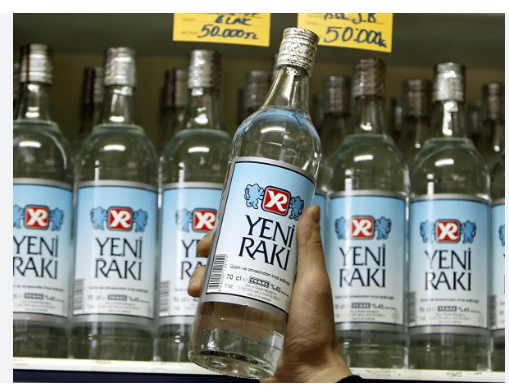Turkey’s Agriculture Ministry plans to require alcohol producers to deposit 5 million to 50 million lira ($1.7 million) collateral to cover tax or administrative fines that they may face in the future. Small producers have stated that the new deposit scheme would make them vanish against the big producers, according to Duvar English.
Under the rule of President Recep Tayyip Erdoğan’s Islamist-rooted Justice and Development Party (AKP) for 21 years, alcoholic drinks makers in Turkey have faced an increasingly onerous tax burden and other restrictions, leaving the multi-billion dollar market stagnant.
Now small winemakers and breweries fear a planned financial collateral requirement will make it even harder for them to survive in the tough local market, and frustrating efforts to develop their unfulfilled export potential.
Producers already face obstacles such as a ban on online sales since 2011, a prohibition on marketing and restrictions on retail sales. Alcohol cannot be sold in close vicinity to public buildings or schools,
“After the ban on online sales, we can say this is another nail in the coffin for small producers,” said Çamlıca, founder of Chamlija Winery in Kırklareli, northwest Turkey. Camlica recently won two awards at the AWC Vienna competition for his Cabernet Sauvignon and Merlot reds.
Turkey has made some strides towards international recognition two decades ago, but failed to capitalize on that, a local vineyard owner said.
“A few of us braved the export market, but just a few. If this draft is implemented, what will we have to show for it?,” he said, requesting anonymity to avoid drawing authorities’ attention.
Winemakers operate in a region with an ancient tradition of production dating back thousands of years, but in a Muslim country and under an Islamist-rooted ruling party that frowns on alcohol consumption.
While Turkey was the world’s number five grape grower in 2021, with 419,000 hectares (1.04 million acres) of vineyards, according to International Organization of Vine and Wine, only 15% of that area was dedicated to wine production.
While drinking alcohol is forbidden in Islam, it is drunk relatively freely in Turkey, though mainly in more secular, western and tourist coastal regions. Local wine consumption was 834,000 hectolitres in 2021, just below Bulgaria, with less than a tenth of Turkey’s population.
People enjoy their drinks at a bar in Istanbul, Turkey, Jan. 17, 2024. REUTERS/Dilara Senkaya
Agricultural Ministry to require 5M to 50M lira collateral
Under the draft regulation that emerged last month, the agriculture ministry will require alcohol producers to provide financial collateral to cover tax or administrative fines that they may face in the future.
All alcohol producers and importers will have to deposit 5 million to 50 million lira ($1.7 million) collateral, which would be seized if a fine is left unpaid, under the regulation, the draft of which was seen by Reuters.
“Once in place, there is nothing to stop them from raising arbitrarily, perhaps doubling, collateral next year,” Çamlıca said.
He and other producers say the collateral represents a multiple of the initial outlay for a small winery, creating a barrier for new investors, threatening expansion plans or even forcing some to quit the market.
Small producers are set to be hit hardest. Some 130 of around 180 vineyards and wineries in Turkey are small, with capacity at less than 500,000 litres.
Follow our English language YouTube videos @ REAL TURKEY: https://www.youtube.com/channel/UCKpFJB4GFiNkhmpVZQ_d9Rg
And content at Twitter: @AtillaEng
Facebook: Real Turkey Channel: https://www.facebook.com/realturkeychannel/
